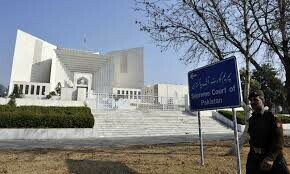ISLAMABAD: The World Bank has given approval to the ‘Punjab Green Development Programme’ to strengthen environmental governance and promote investment.
According to a bank document, the project will be launched next month with the installation of the new government in the province.
The programme’s cost over five years amounts to $273 million, of which $200 million will be financed by the International Development Association (IDA) of the World Bank group. The World Bank approved the project on May 25, while the legal agreements were signed just before the completion of previous government’s tenure.
Under the programme, the Punjab government will promote green financing as a way to mobilise resources for green investments beyond the programme’s implementation period, and will directly support priority green investments in both the public and the private sectors. To mobilise domestic capital markets as a sustainable source of finance for green investments, the finance department will develop a set of principles for the issuance of green bonds.
An amount of $273m will be spent on the project over five years
In line with the Punjab Environmental Protection Act of 1997 and amended in 2012, which authorises the creation of a provincial fund to finance environmental projects, the provincial government will establish a fund with a capital of $55 million from the programme.
The programme operation has been designed in the context of mounting environmental challenges like air, water and soil pollution in Punjab along with its continued economic growth in recent years.
Lahore, the country’s second largest city with over 11 million inhabitants, is one of the world’s most populated cities and has been increasingly affected by toxic smog in recent years, caused notably by increasing emissions from industries, vehicles, power generation, and open trash and crop burning. Smog from Lahore and other cities in Punjab can extend throughout the province depending on the season and weather patterns.
Moreover, surface water and groundwater are seriously polluted due to untreated municipal, agricultural, and industrial wastewater. In the absence of adequate facilities, solid waste is disposed of with minimum sanitary measures.
A report of the World Bank says current trends, including industrialisation and urbanisation suggest that issues related to air, water and soil pollution in Punjab will worsen unless the institutional and technical capacity of organisations responsible for pollution management are strengthened, and unless targeted interventions are adopted to control such pollution releases and promote a greener growth trajectory.
The 18th Constitutional Amendment devolved among others, the responsibility for environmental planning, pollution control, and pollution prevention to the provinces, which still have very limited capacity to carry out such responsibilities. The Punjab government has been under increasing pressure to act to curb the growing smog crisis.
To improve the environmental governance and ensure sustainable development of its economy, the Punjab government requested the World Bank’s support to address environmental challenges faced by the province.
Given the large contribution of vehicles to air pollution, the new programme will support Punjab government to strengthen its control over vehicle emissions. Specifically, the transport department will expand the scope of its existing procedure for the vehicle inspection and certification system to cover the entire fleet including private vehicles. It will also study the institutional and regulatory framework needed to ensure compliance of new vehicles with safety and emission standards, with a focus on rickshaw production.
The World Bank says in its report that ambitious efforts are needed in Punjab to reduce the rising social and economic costs of environmental degradation. Pollution is responsible for major health costs for residence of the province. It is also slowing productivity in sectors such as leather, transport and agriculture. Likewise, growing energy demand and erratic energy supply contribute to pollution due to the common use of small diesel electric generators and have increased pressure for improved energy efficiency in the different sectors of the economy.
Published in Dawn, August 6th, 2018















































Dear visitor, the comments section is undergoing an overhaul and will return soon.